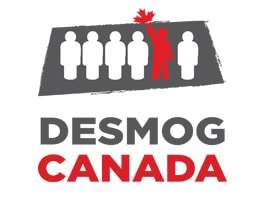The most urgent environmental threat to Canadians isn’t climate change, the declining health of our oceans, or the extinction of species. It’s the pollution filling our nation’s public square.
The public square – the forum for free debate that we depend on in a democracy – is being choked by misinformation, denial and bitter adversarial rhetoric. It is causing the Canadian public to turn away in despair, creating an epidemic of mistrust and what’s worse, disinterest.
Instead of open and healthy debate, dysfunctional public conversations have become the norm, preventing us from confronting the reality of our destructive impact on the planet. We seem unable or unwilling to weigh facts honestly, disagree constructively and deliberate collectively.
DeSmog Canada will wade through the PR pollution that is preventing us from having sensible public conversations about critical issues around the environment, social justice and the economy.
Here, we will work to clear the air and explore solutions for cleaning up Canada’s polluted public square. We will examine why Canadians often feel powerless to demand that government and industry focus on what’s really important: developing more effective public policies and transitioning to a healthier, more sustainable economy.
To begin, we need to call out some of the biggest polluters of the public square. These are the harmful PR strategies employed by government and industry aimed to dissuade the public from discussing legitimate concerns.
One of the most blatant examples is the “Ethical Oil” campaign being used by the oil and gas industry to justify unfettered expansion of Alberta’s oil sands. It’s a deceptive campaign that intentionally aims to subvert public awareness and confuse debate by blurring the issues.
Consider the phrase Ethical Oil – a presumptuous and oversimplified pairing of words that leaves little room for the many ethical questions and concerns of Canadians. The Ethical Oil Institute goes so far as to call its cause the “fair trade choice in oil”. The suggestion is that Canadians and the developing world need to support production in the oil sands to squeeze out the markets of “politically oppressive and environmentally reckless regimes” in places such as the Middle East. Unfortunately, not everyone recognizes this type of deceptive messaging, or the damage it can cause.
It is a nasty PR tactic designed not to persuade, but to distract the public through misdirection and misinformation. In fact, Ethical Oil’s strategy is more cynical than most. It mislabels itself to deliberately confuse people about their interests. Ethical Oil then demonizes its opponents to create a culture of mistrust. Citizens become so confused by the cacophony of conflicting information and rhetoric that their reaction is to simply tune out.
In the past, this style of propaganda has been resorted to by industries desperate to escape accountability for their irresponsible business practices. Recall the tobacco industry’s extensive campaign to cast doubt on the health threats of its products, or the oxymoron that is the American coal industry’s “clean coal” marketing campaign. Instead of making claims with substance, the goal of this type of PR spin is to polarize public opinion and discourage critical thinking.
Similar tactics have been used by the Harper Government to stifle debate around the expansion of the oil sands and risky projects such as the Northern Gateway Pipeline. Consider Natural Resources Minister Joe Oliver’s now infamous statement about “environmental and other radical groups” that questioned the social and environmental impact of the Enbridge Northern Gateway pipeline. Environment Minister Peter Kent even suggested charitable groups in Canada are “laundering” foreign funds, yet admitted later he had no evidence to back up his accusations.
The government continues to suggest that Canadian groups that speak out against the environmental impacts of resource development are trying to undermine Canada’s sovereignty and economic growth. Again, it’s an attempt to force the public to take sides on an issue where there is no black and white.
If all of this sounds melodramatic, that’s the point. Canadians who hear elected officials talking about money laundering and environmental radicals are likely to treat the information as yet another form of entertainment, then promptly ignore it. This serves to silence Canadians who already mistrust business and government, believing the system is rigged and that there is little they can do to make a difference. This attitude fuels public apathy, playing into the PR strategy to drown out dissent and smother public discourse.
Our goal is to put an end to this practice by exposing it for what it really is: a PR bullying campaign. At the same time, we want to encourage and build the kind of healthy public discourse that is needed to foster a true democracy. After all, democracy is dependent on a citizenry that is engaged and capable of sorting some approximate version of the truth amidst a sea of opinion in the public square.
We invite you to be part of this conversation. Share your thoughts here and feel free to share this and other DeSmog Canada content on social media and other channels. Follow us on Twitter and Facebook.
Together, we can clean up the public square and encourage all citizens to pursue their right to take part in decision-making processes that will have a lasting impact on their health, community and the economy for decades to come.
Subscribe to our newsletter
Stay up to date with DeSmog news and alerts







